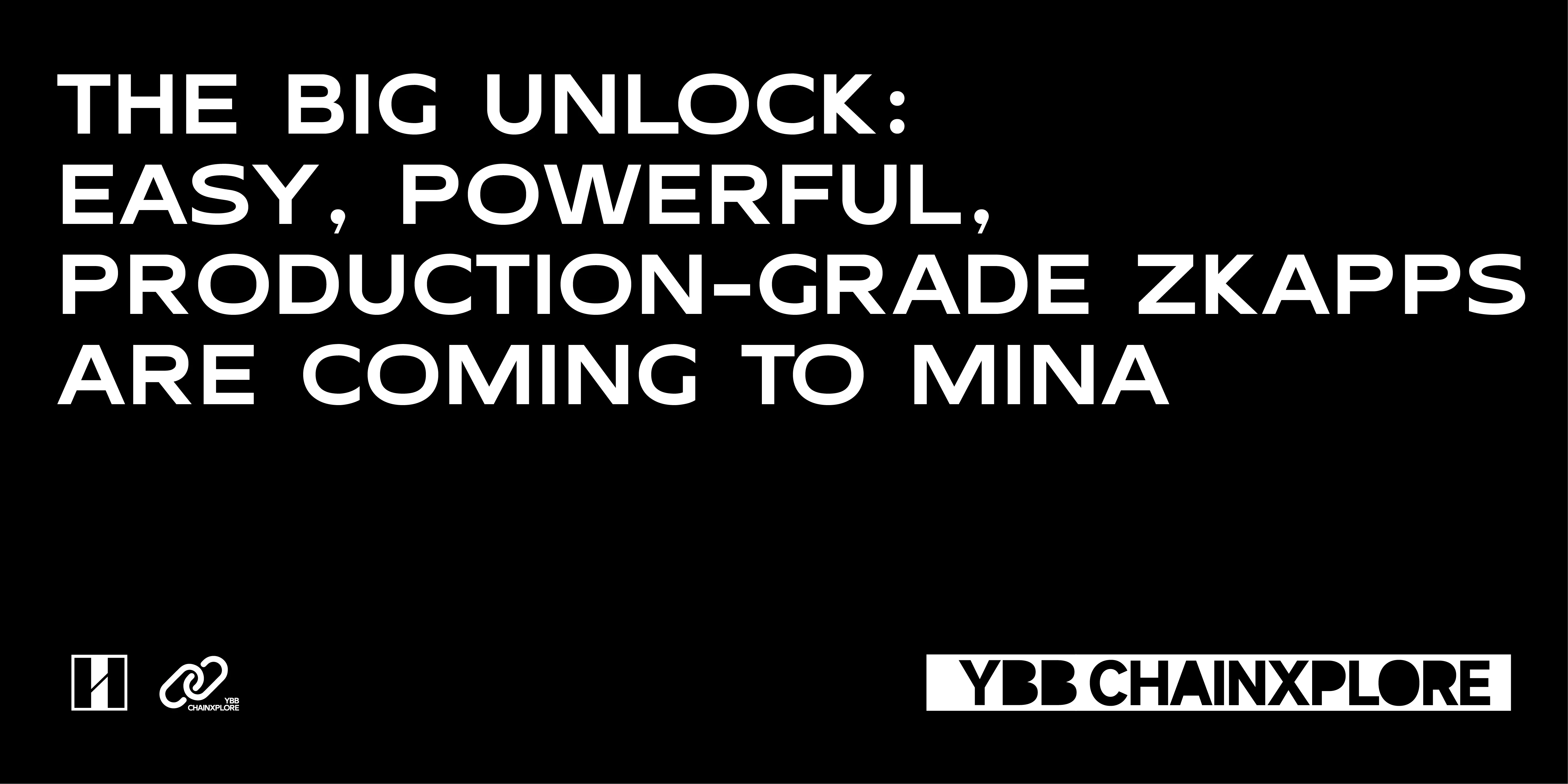
Original Author: o1labs Phil Kelly
Original Translation: YBB Capital Erin
Preface
The major upgrade of Mina has brought innovative zero-knowledge use cases, introducing the ability to execute smart contracts offline in client environments such as browsers or servers. This article explores the importance of zkApps (zk-enabled applications), their potential impact on Web3, and the key role of Mina's upcoming Berkeley upgrade.
In the rapidly evolving Web3 space, the latest breakthrough in zero-knowledge has ushered in a new era. Advancements in zk infrastructure, from faster rollups and light clients to bridging technologies, have been garnering attention. However, we believe that a truly game-changing capability has emerged—fully offline execution of smart contracts in client environments such as browsers or servers.
Moving Off-Chain
How is this achieved? The key innovation lies in using zk application (zkApp) code to create smart contracts. This code can ensure tamper-resistant execution and provide third-party verifiability of correctness without introducing new trust assumptions, essentially mirroring the functionality of on-chain smart contracts.
These zk-enabled applications have far-reaching implications. By moving the execution of smart contracts off-chain, numerous challenges associated with on-chain execution, such as gas costs, data constraints, scale limitations, and time lags, can be overcome. Additionally, zkApps can enhance privacy protection, allowing verification of sensitive information such as age without revealing precise personal details like birthdates.
The introduction of zkApps will unleash a wave of innovation, injecting new vitality into the cypherpunk spirit of Web3 and reviving ideas that were once thought unattainable in the past 5-10 years.
Anchoring On-Chain
Despite the off-chain functionality of zkApps, anchoring to the chain remains crucial. After over two years of development, Mina's Berkeley upgrade is in its final preparation stage. Why do zkApps need the chain? Because off-chain zkApp proofs require verification, and leveraging the chain brings several trusted verification advantages:
Automatic verification by professional neutral validators on the chain itself
Automatic triggering of subsequent actions based on verification results (e.g., your DeFi account being activated when you prove you are over 18, transactions being finalized)
Permanent storage of verification information for future data reference
Connectivity to verification on other chains
The reality is that the verification process between off-chain smart contracts and on-chain verification may sound less glamorous, but if missed, the advantages of off-chain methods can quickly be diminished. Without a purpose-built chain like Mina, smart contract verification could become cumbersome, complex, and costly, so Mina was built from the ground up to handle zero-knowledge proofs (ZKPs). With the Berkeley upgrade, the Mina blockchain will become an excellent venue for verifying off-chain application proofs. Why will Mina be an excellent venue for verifying zkApps?
No gas costs, ensuring low costs for verifying on-chain proofs regardless of the scale of off-chain smart contracts
Mina's minimal state means that in the near future, a full node should be able to run in a user's browser, allowing proof submission without the use of third-party remote procedure call (RPC) protocols—ideal for privacy protection
Mina's minimal state also means it can be expressed on other chains through state-based proofs (without tokens for attacks), making Mina a modular proof layer for the entire Web3. Among many other functionalities, this allows you to write a zk application once, verify it on Mina, and then bridge the verification to multiple other chains. This is an era of instant, multi-chain DApps.
Its verification can be done directly on EVM chains, but in the software application domain, we all know that "can" does not equal "should." So theoretically, EVM can also be used as a data availability (DA) layer and decentralized sorter for other chains, but the Web3 world has moved past verification modularization as the way to achieve these specialized functionalities, and verification proof is a highly specialized function.
Off-Chain Revolution
Returning to the application code, looking ahead to the remaining time in 2024, we at o1Labs are looking forward to a surge in zk off-chain computation-driven application and use case innovation, bringing several exciting possibilities:
Fuel-free computation: zk off-chain computation allows for arbitrary-sized computation without the need for fuel, without trust;
Verifiable privacy: Client-side zk ensures widespread verifiable privacy;
Use of Web2 data: Using multi-party computation (MPC) and ZK for "notarization," making everyday use of Web2 data possible;
Simple construction of zkApps: New domain-specific languages (DSLs), such as o1js, using TypeScript, enable developers to quickly and easily build zk applications.
o1js: Bringing zk code to the off-chain as well
While it has been possible to build zk code off-chain in the past, it has always been challenging, and o1js makes it simple. By leveraging TypeScript, o1js provides a high-level, intuitive language that makes deployment and maintenance easier. Since o1js supports WebAssembly (WASM) functionality, your zkApp can seamlessly run in a user's browser. Additionally, o1js's recursive capability allows multiple proofs from off-chain computation to be aggregated and compressed into a small proof.
o1js has been available since 2022, and it is not only mature but also gaining new capabilities. A recent round of exciting enhancements to o1js's basic functionality allows zk applications to handle a wider range of inputs. Examples include:
Release of ECDSA and Keccak primitives, allowing you to use Ethereum data sourced data signed by MetaMask;
Support for SHA-256 encryption, which is the foundation of many data sources in the Web2 world (e.g., passport data);
Notarization and attestation primitives, making information in Web2 sessions verifiable data (e.g., your bank account balance). Stay tuned for more information!
Join the zkApp Revolution
The emergence of zkApps on Mina marks a pivotal moment in the development of Web3, unlocking possibilities in areas that were once considered impractical. We look forward to seeing what the ecosystem will build after the Berkeley upgrade. Stay updated on the latest developments of Berkeley by following us on Twitter/X and joining the Mina Discord.
免责声明:本文章仅代表作者个人观点,不代表本平台的立场和观点。本文章仅供信息分享,不构成对任何人的任何投资建议。用户与作者之间的任何争议,与本平台无关。如网页中刊载的文章或图片涉及侵权,请提供相关的权利证明和身份证明发送邮件到support@aicoin.com,本平台相关工作人员将会进行核查。



